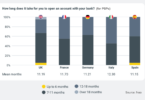The Spanish banking consortium Niuron announced a blockchain project to verify the digital identity of customers. The project’s proof of concept focused on Know Your Customer and demonstrated greater security and speed. As a result, the group aims to launch the platform by the end of the year.
The consortium consists of nine banks with Grant Thornton as the technology provider and is lead by wholesale bank cecabank, known for providing banking to investment and pension funds. The other eight banks are Abanca, Bankia, Caixabank, Caixa Ontinyent, Ibercaja, Kutxabank, Liberbank and Unicaja Banco.
Spain’s two largest banks Santander and BBVA participate in other blockchain projects but are not part of this consortium.
The alliance created a subgroup of five banks to work on this project plus one non-consortium member, Caja Ingenieros. The purpose is to quickly and safely establish the veracity of a customer’s identity when they first register with a bank. Given the new GDPR legislation, this will have customer consent.
The more controversial aspect is the sharing of the client’s digital identity amongst banks, with consent.
The banks expect to benefit from increased speed, cost savings, reduction of fraud, reduction of operational risk and improvement of the prevention of money laundering. From a client’s perspective, the process should speed up a client’s bank registration and provides sovereignty over their personal data.
US credit union digital id
In the US the credit unions came together to create the myCUID digital id system to enhance fraud prevention via call centers.
For example, if someone calls into one credit union and attempts a scam, their phone number will be flagged. If the same person makes a similar contact at a different credit union, the call center will be aware. It’s unclear whether this sort of thing would be permissible in Europe under GDPR.






